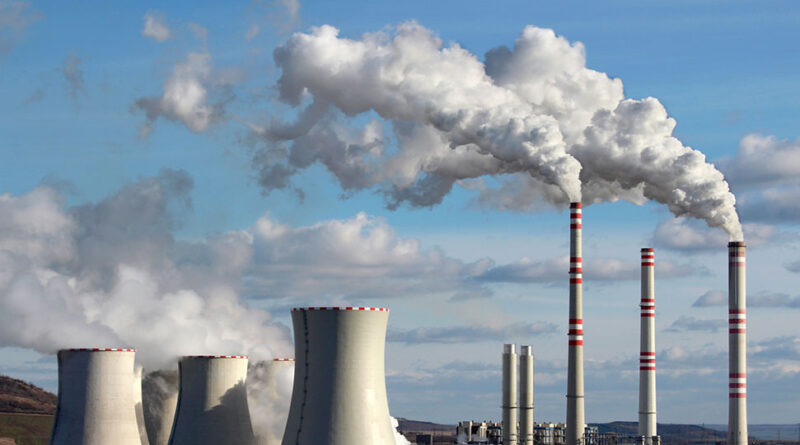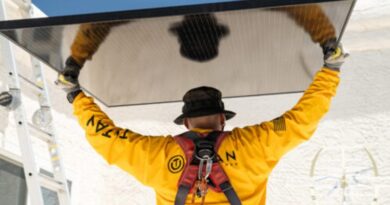ESG Watch: Trade associations ‘need to back the green agenda’ as EU shifts to the right
When it comes to tackling climate change, most companies have accepted the need to tackle their emissions and have some kind of decarbonisation target.
But for many corporates, there is a blind spot in that commitment, deliberate or otherwise – the public commitments they make at a company level are not always matched by the industry associations they belong to.
Trade associations act as middlemen between government and corporates, helping to de-risk the conversation and making it easier for policymakers to act, says Louise Kjellerup Roper, CEO of the consultancy Volans, which has been looking at trade associations’ impact on climate action for a couple of years. “Trade associations are much more powerful than even the biggest individual companies.”
And with the European Commission facing increased opposition to its Green deal package from a more rightward-leaning European Parliament in the wake of the recent elections, it is all the more critical for trade associations to use that power to “act the heroes” and back the net-zero agenda, says Kjellerup Roper.
“They can help prevent Brussels backsliding on the Green Deal and recognise that this and other climate focused legislation is essential, not only to help prevent climate disaster, which will be costly in human and financial terms as well as environmentally. but also to support European competitiveness.”
She adds: “If business associations don’t speak up, they will be complicit in the destruction of the EU’s leadership on green issues – an already contested position. Perhaps more importantly, they’d be failing in their duty to represent their members’ best interests. Businesses don’t change their long-term strategies based on the results of a single round of elections. Their desire for credible policies to deliver a transition to net zero hasn’t evaporated because a few more climate-sceptic MEPs have been elected.”
Heather Buchanan, CEO of Bankers for Net Zero, agrees that trade associations can play an important role in accelerating progress towards net zero. She told a recent Global Compact webinar: “Industry associations can foster a space where it’s OK to highlight concerns and talk about the challenges we face.”
When it comes to cutting emissions, companies are starting to realise that a lot of the low-hanging fruit has been picked and that the next moves to decarbonise may well be more expensive and riskier. “They’re asking ‘how do we derisk this?’ If policymakers force everyone to act, it’s much easier. So they want trade associations to advocate for stronger climate policies.”
However, Buchanan told the webinar, “trade associations have had a tendency to have ‘lowest common denominator’ opinions on climate change, matching the feelings of their least ambitious members. If companies are serious about using their influence, they need to get a handle on what those associations are doing and saying.”
In many cases, the loudest voice in the room dominates, agrees Ben Youriev, head of research on energy, mining and Transport at InfluenceMap, “and some incumbent industries are reluctant to change”.
Industry associations are very different entities to the companies they represent, says Jules Peck, a partner at environmental consultancy ERM. “They don’t have the investor and NGO pressure that companies have had for decades, so there is a certain lack of accountability. And for some of them, climate is only of peripheral interest – it’s not their area of expertise at all.”
However, many companies are not giving this misalignment with their trade associations sufficient attention. Ben Pincombe, head of stewardship and climate change at the Principles for Responsible Investment, told the webinar that 98% of companies have not carried out a review of the climate policy positions of their trade associations; and 83% have no commitment to ensure that their trade associations’ lobbying is Paris-aligned.
“There is a lot of inconsistency and a lack of transparency on what trade associations are doing,” Pincombe added.
However, there is a standard, opens new tab to guide companies, the Global Standard for Responsible Climate Lobbying, developed by Sweden’s AP7 pension fund, BNP Paribas Asset Management and the Church of England Pensions Board.
Meanwhile, Climate Action for Associations aims to “harness the collective power and influence of the membership sector to accelerate the transition of whole sectors, systems and professions”.
Ways that this misalignment between companies and their trade associations can manifest itself range from being actively resistant to specific climate policies to being passive in asserting climate policies, being aligned but not science-based, and having a low engagement intensity on the issue.
“If the association is misaligned with your message as a company, why are you paying membership fees?” Roper asks.
For large companies, it is not always obvious what stance is taken by the organisations they belong to. Unilever, for example, is a member of more than 600 trade associations, while Iberdrola has assessed its membership of more than 100 organisation for climate relevance and ambition.
Volans worked with Unilever on its recent Climate Policy Engagement Review, using InfluenceMap’s LobbyMap tool, opens new tab. Youriev says that the review “sets a new benchmark for best practice in corporate climate policy lobbying disclosure. Unilever has now become the first company (out of more than 80 companies InfluenceMap has reviewed) to publish a corporate climate policy engagement review in-line with expectations, as clarified by the Climate Action 100+ process, opens new tab and investor groups like U.N. PRI and articulated by the Global Standard for Responsible Climate Change Lobbying.”
If all companies disclosed the position of their trade associations, “this would force industry groups to align their engagement with the vast majority of their members on climate policy, not just represent the loudest (and most oppositional) voices”.
Change is possible, Youriev says. “Eurelectric was previously super-negative on climate action and now it is one of the loudest voices for change because many of its members pushed for that.”
Unilever left the European Chemical Industry Council (CEFIC) in 2015 due to misalignment on climate policy, but rejoined in 2022 after a change in stance from the council.
Many other associations remain obstructive forces, however. In Australia, electric carmakers Tesla and Polestar left the Federal Chamber of Automotive Industries, opens new tab, the main industry body, in protest at its opposition to the government’s new vehicle efficiency standard. “There is a huge risk for industry associations of becoming irrelevant both to the public and policymakers, who may just stop listening to them,” Youriev points out. As of May 2024, Tesla was not a member of any of the major trade associations.
At the same time, InfluenceMap’s review of the auto industry’s lobbying reviews shows that sometimes, it is the companies themselves that are resistant to change. Eight groups have published a review, “but none come close to meeting the required standards,” according to Youriev. Polestar was not among the companies in the survey.
“We recommend that companies assess whether associations are blocking progress to a 1.5C trajectory, but they don’t do that, they assess against their own positions on climate. If a company supports a slower transition to electrification, the benchmark for alignment is much lower.”
As ERM’s Peck points out, “there are still a lot of grey areas in industry associations’ engagement on climate. Blowing away some of that fog would be helpful.”




